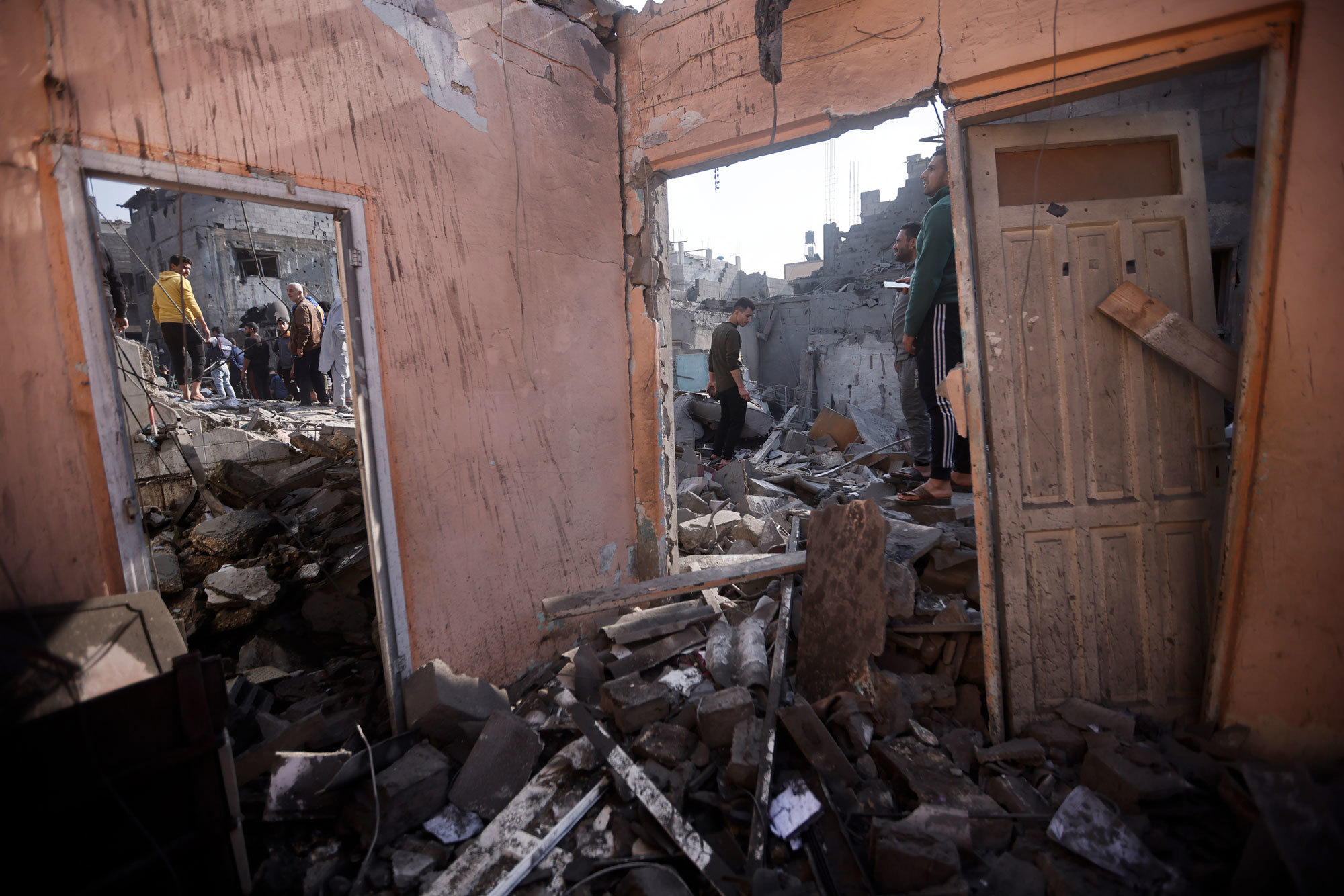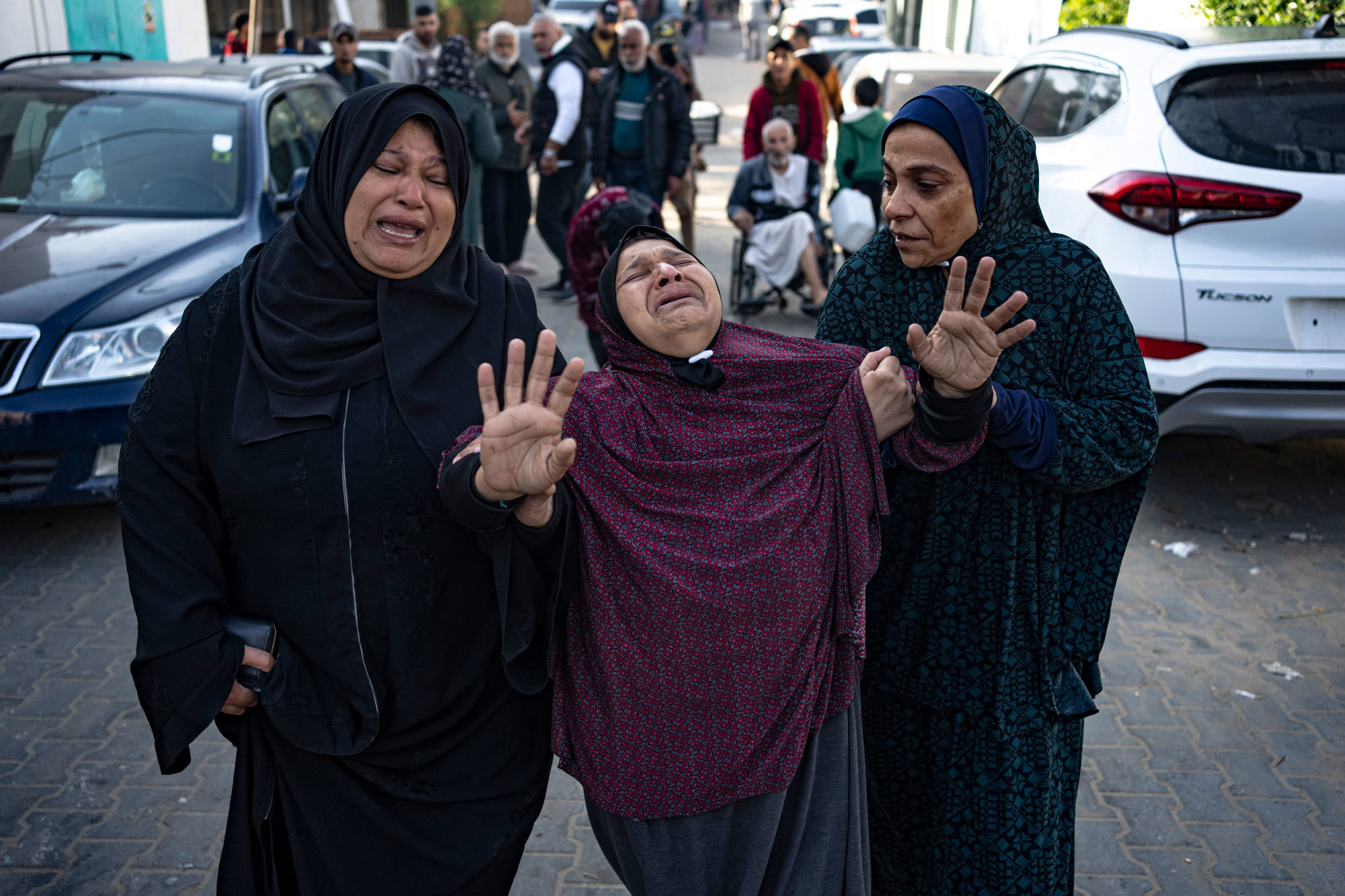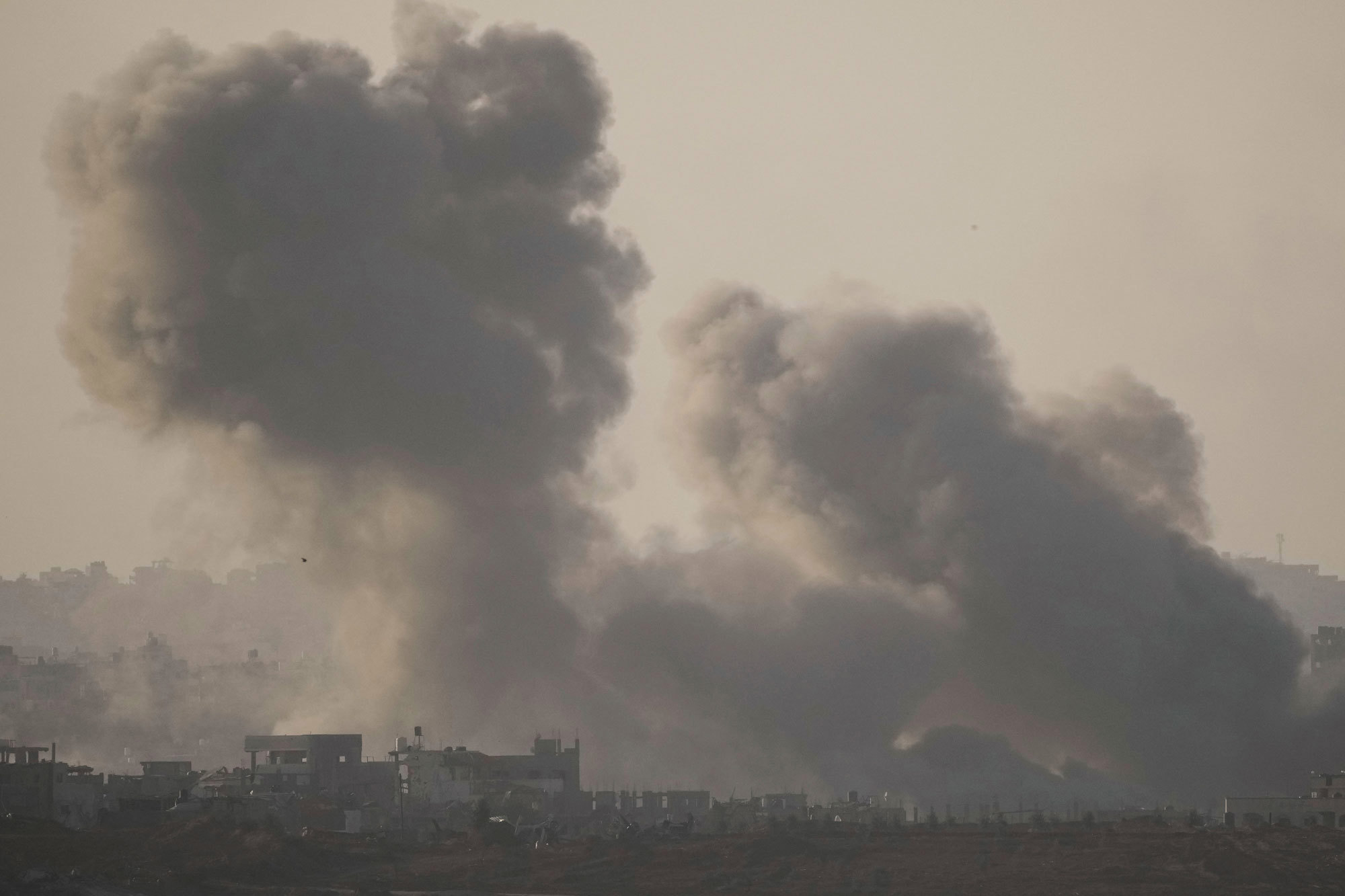Israeli authorities recalled their team of negotiators from Qatar after reaching a "dead end" in talks to end the fighting in Gaza, according to a statement released by the Prime Minister Benjamin Netanyahu's office.
"The Hamas terror organisation did not fulfil its part in the agreement, which included the return of all women and children held hostage, in accordance with a list sent to Hamas and approved by them," the statement said.
The negotiators were from Israel's Mossad intelligence agency and the statement said it was the head of the agency, David Barnea, who recalled the team.
READ MORE: LA cops seek suspect killing sleeping homeless people
The truce between Israel and Hamas collapsed on Friday morning.
By Saturday, Israel was pounding targets in the crowded southern half of the Gaza Strip and ordered more neighbourhoods designated for attack to evacuate, driving up the death toll even as the United States and others urged it to do more to protect Gaza civilians a day after a truce collapsed.
At least 200 Palestinians have been killed since the fighting resumed Friday morning following a weeklong truce with the territory's ruling militant group Hamas, according to the Health Ministry in Gaza.
Several homes were hit across Gaza on Saturday, with multiple casualties reported in a strike that flattened a house on the outskirts of Gaza City.
Separately, the ministry announced that the overall death toll in Gaza since the October 7 start of the Israel-Hamas war surpassed 15,200, a sharp jump from the previous count of more than 13,300 on November 20.
The ministry stopped issuing daily updates of the overall toll on November 11, following war-related disruptions of connectivity and hospital operations.
The ministry does not differentiate between civilians and combatants, but said Saturday that 70 per cent of the dead were women and children. It said more than 40,000 people were wounded over the past two months.
With the end of the temporary truce, Israel has been urged by the United States, its closest ally, to do more to protect Palestinian civilians.
The appeal came after a blistering air and ground offensive in the first weeks of the war devastated large areas of northern Gaza, killing thousands of Palestinians and displacing hundreds of thousands.
Some two million Palestinians, almost the entire population of Gaza, are now crammed into the territory's southern half.
It was not clear if Israel's military would heed appeals to spare civilians. The military said on Saturday that it hit more than 400 Hamas targets across Gaza over the past day, using airstrikes and shelling from tanks and navy gunships.
It included more than 50 strikes in the city of Khan Younis and surrounding areas in the southern half of Gaza.
With the resumption of fighting, the Israeli military published an online map carving up the Gaza Strip into hundreds of numbered parcels and asked residents to familiarise themselves with the number of their location ahead of evacuation warnings.
On Saturday, the military used the map for the first time, listing more than two dozen parcel numbers in areas around Gaza City in the north and east of Khan Younis.
Separately, the military dropped leaflets with evacuation orders over towns east of Khan Younis.
One resident in Khan Younis said a neighbour received a call from the army warning that houses in the area would be hit and everyone should leave.
"We told them, 'We have nothing here, why do you want to strike it?'" said the resident, Hikmat al-Qidra. They eventually left, and al-Qidra said the house was destroyed.
The maps and leaflets generated panic and confusion, especially in the crowded south. Unable to go to northern Gaza or neighboring Egypt, their only escape is to move around within the 220-square-kilometre area.
"There is no place to go," said Emad Hajar, who fled with his wife and three children from the north a month ago to Khan Younis.
"They expelled us from the north, and now they are pushing us to leave the south."
Amal Radwan, who sheltered in the urban Jabaliya refugee camp in northern Gaza, said she was not aware of such a map, adding that she and many others were not able to leave because of the relentless bombardment.
"Here is death and there is death," she said.
Israel says it is targeting Hamas operatives and blames civilian casualties on the militants, accusing them of operating in residential neighborhoods. It claims to have killed thousands of militants, without providing evidence.
Israel says 77 of its soldiers have been killed in the ground offensive in northern Gaza.
Also Saturday, the Palestinian Red Crescent said it had received aid trucks through the Rafah crossing, the first convoy since fighting resumed.
Wael Abu Omar, a spokesman for the Palestinian Crossings Authority, said 50 trucks were scheduled to enter Gaza but said there were no fuel trucks among them.
"Current conditions do not allow for a meaningful humanitarian response, and I fear will spell disaster for the civilian population," Pascal Hundt, in charge of operations in Gaza for the International Committee of the Red Cross, said in a statement.






